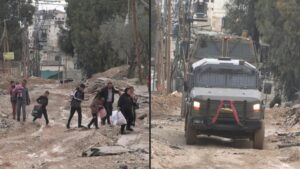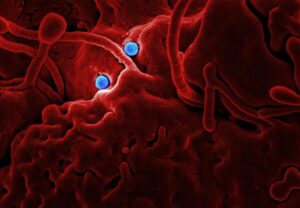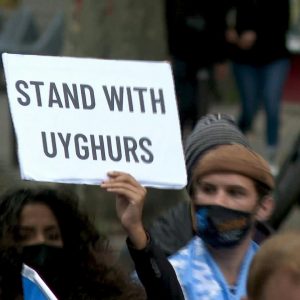Unprecedented crisis unfolds in Gaza: Thousands dead, infrastructure collapsing
A relentless conflict between Israel and Hamas escalates, causing widespread destruction, thousands of casualties, and a dire humanitarian situation.
Muslim Network TV Desk with inputs from agencies
GAZA, Palestine – Israel’s incessant bombardment on Palestinian territory of Gaza Strip have led to an unprecedented crisis, with number of deaths increasing and leading to a complete societal collapse.
Reports confirm the death toll has shockingly risen to more than 3,000 civilians in Gaza and the occupied West Bank since the hostilities intensified.
The Palestinian Central Bureau of Statistics has revealed that 90% of these killings occurred in Gaza, currently under severe Israeli bombardment.
This recent conflict, characterized by relentless violence and disregard for human life, marks the highest death toll in nearly two decades.
The health infrastructure in Gaza is crumbling under the crisis, with local health officials reporting 2,808 fatalities and an astounding 10,859 wounded due to Israeli attacks. In a heart-wrenching development, over 750 children have been confirmed dead in the relentless offensives.
Amidst this chaos, the World Health Organization has issued a stark warning: Gaza is on the brink of disaster, with less than 24 hours of water, electricity, and fuel supplies remaining.
In response to Israeli airstrikes, Hamas’s armed wing declared rocket attacks towards Jerusalem and Tel Aviv, an action that brought an abrupt halt to an ongoing Knesset session due to rocket sirens.
A young Palestinian man was killed early Monday as Israeli forces stormed the Aqbat Jabr camp south of the West Bank city of Jericho.
Clashes erupted after Israeli forces stormed the camp, and the man “was shot with several rounds in the chest and a bullet in the head while he was near a mosque,” Palestine’s official WAFA news agency said, citing local sources.
Israeli forces detained six residents of the camp, according to WAFA.
In a related development, Israeli forces also detained a resident of the city of Beit Jala west of Bethlehem.
In Hebron, Israeli forces stormed the Khallet Taha neighborhood the town of Dura south of Hebron and detained three young men, according to local sources.
On Sunday, forces detained 12 Palestinians, including an elderly woman, her son and a girl from Jerusalem.
Journalists under fire
The freedom of the press has also taken a severe hit in these trying times. The Freedom Committee, affiliated with the Palestinian Journalists Syndicate, disclosed that 11 journalists have perished in Gaza, with more than 20 injured and two missing since the Israeli airstrikes began.
These statistics are part of a distressing pattern of targeting journalists, sparking outcry and demands for immediate international intervention.
Mass displacement and deteriorating living conditions
The conflict’s impact extends beyond the immediate violence. Israel’s response has involved cutting essential utilities to Gaza, exacerbating the living conditions in an area already besieged since 2007.
The United Nations Relief and Works Agency for Palestine Refugees (UNRWA) paints a grim picture with at least one million Gazans, forced to abandon their homes within a week, emphasizing that “no place is safe in Gaza.”
Amidst the chaos, fuel reserves in hospitals are dwindling, threatening thousands of lives. The UN Office for the Coordination of Humanitarian Affairs (OCHA) has cautioned that the shutdown of backup generators could have catastrophic consequences, particularly with the ongoing healthcare crisis.
The UN Population Fund (UNFPA) highlighted another grim aspect of the crisis: 50,000 pregnant women in Gaza are unable to access basic health services. With the healthcare system on the verge of collapse, these women face insurmountable challenges, and 5,500 of them are expected to give birth under these dire circumstances this month alone.
The conflict’s repercussions are being felt internationally. An Israeli army officer’s recent death by anti-tank fire on Lebanon’s border and subsequent attacks by the Lebanese Hezbollah group signal a dangerous escalation. Tensions with other regional powers are palpable, reflecting the conflict’s potential to draw in a broader range of actors and destabilize the region further.
Hostages and rising military fatalities
Adding to the dire scenario, the Israeli army announced the number of hostages in Gaza jumped to 199, with 291 soldiers killed since the start of the war on Oct. 7.
Army spokesperson Daniel Hagari said in a news conference: “We have been in contact with the families of 199 captives. The Israeli army and the state are working around the clock to secure their release.” The threat extends beyond the immediate conflict zone, with Israel issuing a stern warning to Lebanese Hezbollah, signaling potential broadening of the military engagement.
As the conflict enters its tenth day with no sign of abating, the international community’s eyes are riveted on the region, where a humanitarian disaster is rapidly unfolding. Urgent calls for ceasefire and humanitarian aid continue to echo around the globe, as leaders and organizations seek an end to the bloodshed and a stable resolution for all parties involved. The world watches, waits, and hopes that diplomacy can avert further escalation of this devastating conflict.
The conflict began when Hamas initiated Operation Al-Aqsa Flood against Israel, a multi-pronged surprise attack including a barrage of rocket launches and infiltrations into Israel via land, sea, and air.
Hamas said the operation was in retaliation for the storming of the Al-Aqsa Mosque in occupied East Jerusalem and Israeli settlers’ growing violence against Palestinians.










